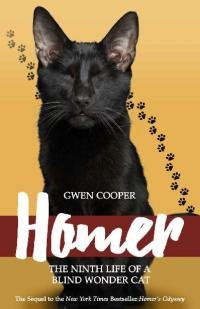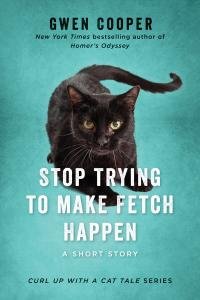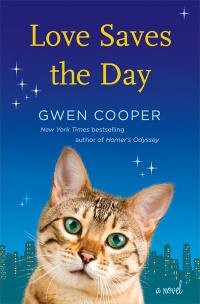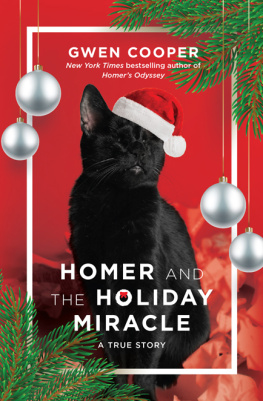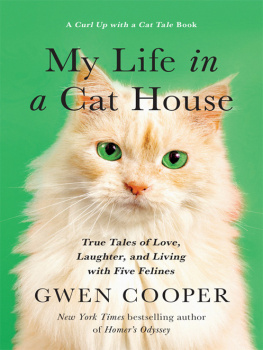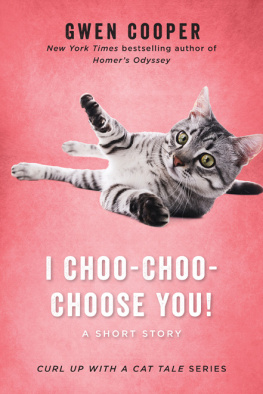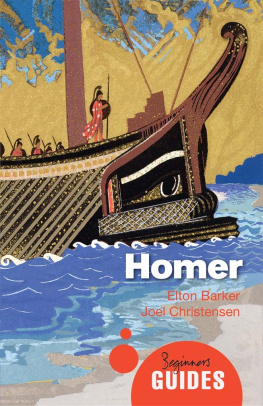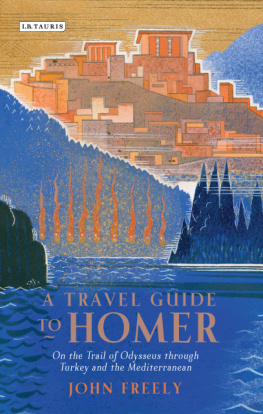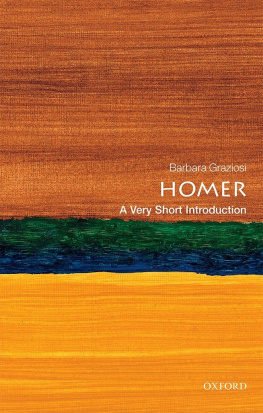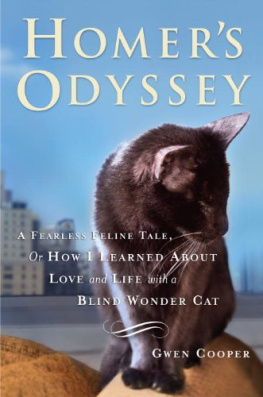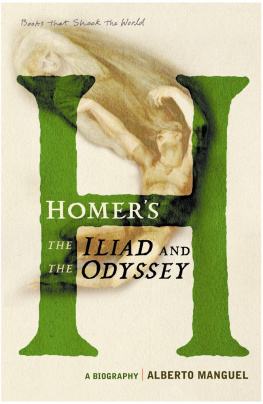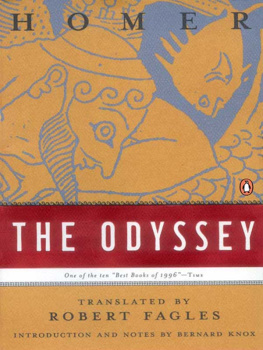Praise for
HOMERS ODYSSEY
A must-read for anyone who has ever loved an animal.
-Fredericksburg Free Lance-Star
Heartwarming and entertaining.
-People Pets
Delightful...This lovely human-feline memoir, following in the footsteps of Vicki Myrons best-selling Dewey: The Small-Town Library Cat Who Touched the World, is sure to warm the hearts of all pet lovers.
-Library Journal (starred review)
A wonderful story celebrating the profound bond that can form between feline and human, Homers Odyssey is an inspiring read, and a perfect holiday gift for any cat lovers on your list.
-Feline Wellness
It took only a glance at the foreword, and before I knew it I was devouring the whole thing like a warm brownie sundae...It was Homer who most often proved to be the hero, once even saving Coopers life when an intruder broke into her apartment. (This story alone is worth the price of the book.)
-The Christian Science Monitor
BY GWEN COOPER
Homers Odyssey
Love Saves the Day

For Homers Heroes--the men and women who work in rescue, the ones who adopt rather than shop, and those who know that when you help animals, you help people too. I never knew that writing
about my cat would lead me to so many outstanding humans.
And for Laurence, always.
Gwen Cooper 2015
All rights reserved.

FOREWORD
Ive been wrestling with the idea of writing a sequel to Homers Odyssey for nearly two years nowfeeling, on the one hand, that there were certainly more Homer stories to be told; but, on the other hand, that to make something book length would require adding an awful lot of padding. Homers Odyssey was published in 2009 and covered the first twelve years of Homers life. Homer lived to be sixteen, and so a new book would have significantly less ground to cover.
What you are holding now is the solution I eventually reachedwhat I like to call a mini-sequel, roughly one-third the length of the original. Not as long as many books, perhaps, but (I think) exactly the length it needs to be.
Length wasnt my only concern. I cant speak for other writers, but for me, to write about something is to relive it as vividly as I did the first time around. I dont know how to make a reader see and feel things that Im not seeing and feeling myself at the moment Im writing about them. There were many, many wonderful times with Homer during those four years after Homers Odyssey came out, and youll read those stories here. But there were also some hard times when we lost him, and I wasnt sure I could bear to go through them again.
Well, it wasnt the first time Ive been wrong, and it wont be the last. One of the cruelest things about losing a loved one is the way that time makes our memories fadeuntil what remains isnt the substance of something, only the factual knowledge that it once existed. But, in writing this book, Ive gotten to live with Homer again. Ive gotten to feel his little head pushing hard into my hand as he demanded his daily pettings; to hear the distinctive clip-clip of his feet as he followed me down the hall; and to listen once more to the very specific melodic bird-song that ran beneath his purr. Its a sound I would instantly know from any other cats purr, even if I were blindfolded.
The only thing that seems remarkable now is that Id ever thought I was losing those things. And the only regret I have is that its taken me so long to write my way back to them. Ive spent the last weeks feeling Homer with methe substance of him, a physical presenceas I havent gotten to do in far too long.
Thats the gift this book has given me. What I hope it will give to readers is more Homer, of course, more of the happy times they shared with us and loved in reading the first book, and all the comedy of seeing a little blind housecatwho, once upon a time, nobody else had wantedtake the world by storm.
I also hope that it will help bring clarity to some of the issues that we wrestled withelder care and end-of-life issues that all animal guardians will have to face eventually. Medical treatment for animals has come a long way since I was a kid living in a family filled with rescue dogs. Often the question now isnt, What can we do? but, What should we do? How much money is too much to spend? How much aggressive medical care is justifiable, even if its the only way to prolong a beloved cats life?
Theres no one right answer to these questionsalthough in this Foreword (and only in the Foreword), Id like to float the idea of pet health insurance for anyone who knows they wouldnt be able to come up with, say, five thousand dollars in cash or credit at a moments notice (which is probably most of us). The monthly premiums are very reasonable and, as they say, you cant put a price tag on peace of mind.
I was lucky as my cats grew older, in that whatever money I had, Id earned by writing about them. I also didnt have children or a mortgage. So whether I could find the money for their care, and whether it was prudent to spend that money on them, werent really questions. If the money came from them, then how could I not give it back?
Nevertheless, we ended up making very different decisions for Vashti, Scarlett, and Homerbecause they were three very different cats. Vashti was easygoing and could handle whatever the doctors wanted to do, so we let them throw the whole arsenal at her. Scarlett was a surly girl and almost morbidly dignified, so we opted for a middle coursesurgery for her cancer, but not chemotherapy or the removal (at the age of nearly seventeen) of her affected leg.
And Homerwell, Homer was Homer. He knew his own mind. He also knew his own strengthbetter, as it turned out, than even I did.
Certainly better than his doctors did.
And I have no doubt that when the kittens we adopted in 2012whose antics, exploits, and hero-worship adoration of Homer youll also read in these pagesbecome senior kitties someday, the decisions we make for them and with them will be different as well. Clayton and Fanny are as much one-of-a-kind individuals as our other cats ever were.
One last thought before moving on: Animals are luckier than humans, because animals get to live in the now. They do not fear death, or torment themselves with questions about what comes after. No cat has ever desperately hoped for one more year of life so she can finally see Paris, finish her memoirs, or watch her grandchildren graduate from high school. I genuinely believe that, if our animals could understand such things and talk to us about them, they wouldnt want us to spend ourselves into bankruptcy for the sake of trying to stretch fifteen years into sixteen, or even six years into twelve.
Cats know when they feel happy, when they feel comforted, and when they feel loved. None of us ever knows how much time well have, and you werent put in your cats life to guarantee him a certain minimum number of years. You were put in his life to provide him with happiness, comfort, and love. If you have given your cat (or dog, or bunny, or horse, or guinea pig) a life built on these things, then youve done your job, and youve done it perfectly. And the moment you put all those things in jeopardy is the moment youll know youve gone too far.
It will be hard to know these things in the chaos of that moment in which theyre happening, when decisions have to be made. I know that firsthand. But if you pause for a moment, take a deep breath, and listen to your cat, he will tell you.
Next page
